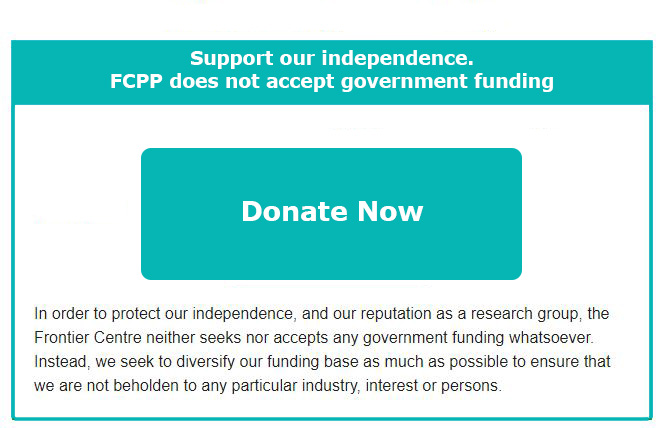Manitoba shows no sign that its policies will be able to maintain the working population, while, over time, returning to annual balanced budgets and cutting taxes to keep the private sector that is here now. This dismal prediction is partially drawn by observing the failing effort of the Manitoba government to bring in more immigrants while stemming the annual out-migration of Manitobans.
Despite drawing an average of 15,000 international and international immigrants each year (five years ending June 30, 2020), Manitoba lost 20,000 people to other provinces (and countries) through out-migration. Only the continuing excess volume of annual births compared to deaths keeps the population growing.
So, over the last five years, 50,000 of ‘once Manitobans’ have left Manitoba’s economy – the equivalent of a Brandon, Manitoba’s second largest city, gone. Federal statistics suggest that Manitoba has joined Newfoundland and Labrador and Saskatchewan in experiencing net out-migration in 2020. No doubt, this situation creates tremendous drag on Manitoba’s annual budgets.
The federal Parliament Budget Officer (PBO) recently issued a national Fiscal Sustainability Report, forecasting that Manitoba’s government fiscal policy is “not sustainable over the long term”. Without a stronger economy, one that would bring in new workers and greater opportunities by new and expanded private sector firms, the Manitoba government will be hard pressed to hold current tax rates, let alone be able to balance its books.
The PBO predicts that “permanent tax increases or (government) spending reductions … would be required to stabilize (Manitoba) government net debt … in the long term”. The federal report suggests that “federal transfers are not projected to keep up with Manitoba’s spending pressure”. Federal transfers, including equalization grants, make up a huge portion of Manitoba’s provincial budget – so relative declines in transfers would hamper balancing budgets, let alone cutting taxes. Manitoba’s high levels of government spending are not sustainable comments the PBO, projecting falling federal transfer revenue as a share of Manitoba’s economy. This bleak forecast arrives as the Pallister government forecasts incurring massive annual deficits over the 2021-2025 period.
All of this recommends lower government spending. Moving forward, Manitoba must grow its private sector. It needs to draw in new firms and create policies to grow existing industries. And, critically, it needs to boost its population with policies that attract and keep new immigrants while discouraging rising out-migration.
However, the recent experience of wooing business immigration appears, sadly, to be failing. In the provincial government’s 2019 budget the government forecast obtaining 450 business immigration applications. But, they ended up actually approving 32 – a shortfall of 92%. So far, 2021 is looking no better.
The Manitoba Nominee Program once was the easiest way to emigrate to Canada. However, the Liberal government introduced new much easier programs allowing most applicants to select Ontario or B.C. Immigrants are more transient and for those that do come to Manitoba they usually end up leaving – in growing numbers once they have Permanent Residence status. Retention of immigrants for Manitoba fail because its present big government/big tax model offers fewer opportunities. Manitoba’s skilled immigrant workers naturally drift to better futures in B.C., Ontario and Calgary.
If Manitoba is to reduce the out-flow of Manitobans and recruit and keep more immigrants, the private sector needs to expand and grow. How to do that before Manitoba slips permanently into the red requires a ‘Thatcher’ moment.
Graham Lane, a retired CPA/CA, is a member of the Frontier Centre for Public Policy’s expert advisory panel.
Photo by Katie Moum on Unsplash.



